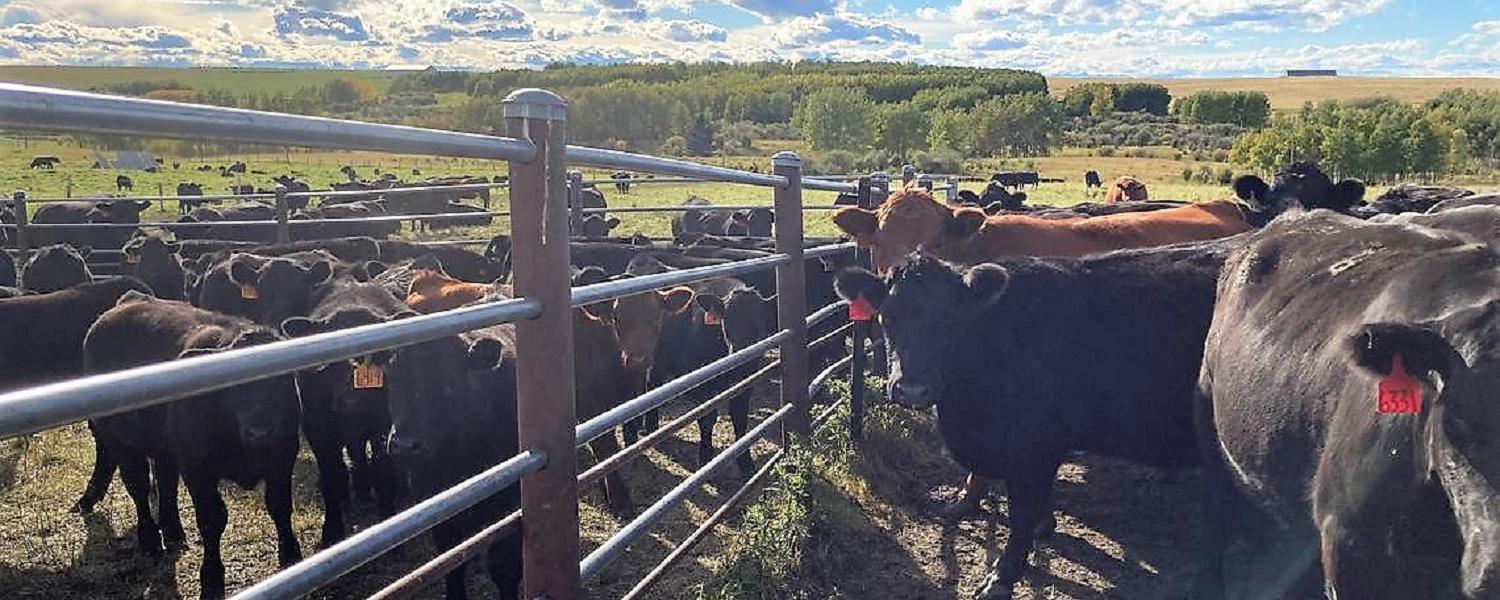
Health impacts of optimized pre-conditioning in beef cattle
What are the costs and benefits of pre-conditioning as it relates to disease prevention and reduced antimicrobial use?
Bovine respiratory disease (BRD), is the most significant disease in the Alberta beef industry. It accounts for approximately 60-70% of all beef cattle morbidities and it is the primary cause of beef cattle mortality in feedlots in North America. Incidence rates of BRD vary, with annual rates reported between 5% – 44%. Though it is difficult to precisely calculate the economic burden, it has been estimated that BRD can cost producers between US $23.23 to $151.18 per head. BRD is a multifactorial disease, however the primary associated bacterial pathogens include Mannheimia haemolytica, Pasteurella multocida, Histophilus somni, and Mycoplasma bovis. Under current management it is difficult to control BRD, as common industry practices (e.g. moving calves from ranch to feedlot, purchasing calves through auction markets, and commingling cattle from multiple sources), increases the risk of BRD. This increased susceptibility can be through exposure to new pathogens, as well as experiences of stress related to the transition from ranch to feedlot. To control BRD, cattle are mass-treated with antimicrobials on arrival, termed metaphylactic treatment. However, metaphylaxis might play a role in development of antimicrobial resistance in bacteria.
BRD can be significantly reduced when simultaneous exposures to multiple stressors are reduced; such as through preconditioning using management practice that prepares calves to enter the feedlot.
In preconditioning system, calves are castrated, dehorned, weaned, adapted to eat from a bunk and drink from a waterer, and are fully vaccinated against viral and bacterial BRD pathogens 45 d before being transported to a feedlot. Despite the evidence that preconditioning reduces BRD morbidities, cow-calf producers do not routinely precondition calves.
Anecdotal reports indicate that when preconditioned calves are mingled with conventionally raised calves (many stressors at the same time, combined with low vaccination antibody titres) the expected growth and health advantages for preconditioned calves will not be achieved. However, this lack of performance may be due to commingling at different proportions of pre-conditioned and conventional (non-preconditioned) calves placed in feedlot pens. Therefore, we are studying the impact of commingling preconditioned calves with 'conventional' calves on morbidity, mortality and productivity. Behavioral parameters and the respiratory microbiome will be studied to understand the ability of preconditioned calves to cope with and thrive in feedlots, as well as through the detailed study of the microbiome. This will allow us to understand the different components that contribute to the impact of preconditioning on performance. Finally, an economic evaluation, including the increased costs at the ranch phase, will provide the industry with a measure of feasibility.
Project Team
Karin Orsel, DVM, PhD
Principal Investigator
Professor, Epidemiology, Infectious Diseases of Cattle, Faculty of Veterinary Medicine

Ed Pajor, PhD
Co-Investigator
Professor, Animal Behavior and Welfare, Faculty of Veterinary Medicine

Frank van der Meer, DVM, PhD
Co-Investigator
Associate Professor, Ecosystem and Public Health, Faculty of Veterinary Medicine










Leveraged Sources of Support
- Anderson-Chisholm chair for animal care and welfare
- Simpson chair for beef cattle health and wellness
- NSERC grant Olds College
- UofC Vet Med in kind
- Olds College in kind
- RDAR: Results driven agriculture research
- BCRC: Beef cattle research council

